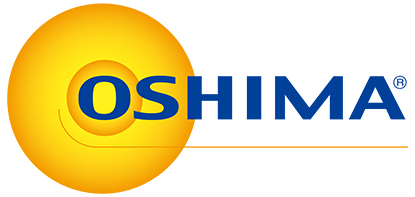In the fast-paced, ever-evolving world of footwear manufacturing, one factor stands unshakeable - quality. A brand's standing and trust in the eyes of consumers hinge on its commitment to produce top-notch products consistently. A brand's reputation hinges on the delivery of high-quality products that meet, and ideally exceed, customer expectations. This article provides comprehensive overview of quality control in footwear production.
The Footwear Market Forecast
Global footwear - segmented into athletic shoes, leather shoes, sneakers, and textile footwear - is a burgeoning industry. According to market projections, this sector anticipates revenues touching US$398.40 billion in 2023, growing at a CAGR of 3.47% from 2023 to 2028. This surge owes itself to factors like the expanding e-commerce sales, hefty advertising expenditure by footwear brands, and the escalating demand for athletic footwear.
Why Does Quality Control Hold the Reigns in Footwear Manufacturing?
Quality control is the cornerstone in the production of durable, safe, and aesthetically appealing footwear. The infamous incident with Zion Williamson's defective Nike sneaker during a crucial game underlines the significance of stringent quality control. This event brought the critical role of meticulous quality checks in maintaining a brand's image and trust to the forefront.
What Happens When Quality Control Isn't a Priority?
The consequences of neglecting quality control can be severe, leading to not only safety issues and product recalls but also potential damage to the brand's reputation. Additionally, poor quality control can result in financial losses due to wasted materials, recall logistics, and lost sales. For these reasons, implementing rigorous and thorough quality control measures is essential in the footwear industry.
Footwear Quality Control Procedures
The quality assurance process in footwear production involves a multitude of tests, each designed to evaluate a different aspect of the product:
-
Carton Drop Test: Checks the strength of the shoe box and its ability to protect the product during shipping.
-
Slip Resistance Test: Ensures the footwear provides sufficient grip on different surfaces.
-
Sole Bonding Examination: Tests the bond strength between the sole and the upper part of the shoe.
-
Material Strength Test: Evaluates the durability of the materials used.
-
Humidity Test: Checks the product's resistance to moisture and evaluates the breathability of the material.
-
Symmetry Check: Ensures both shoes in a pair match in design and size.
-
Endurance Test: Evaluates the shoe's ability to withstand repeated wear.
-
Sharpness Check: Ensures there are no sharp edges or components that could potentially harm the wearer.
-
Mold Contamination Check: Inspects for any signs of mold, which could indicate poor storage conditions or compromised materials.
-
Size Fitting Evaluation: Ensures the shoe fits well and is true to size.
-
Measurement Check: Validates the product's dimensions.
-
Rub Test: Assesses color fastness and resistance to abrasion.
-
Odor Check: Evaluates the product for any unpleasant or chemical odors.
-
Barcode Scan: Confirms the correct labeling and tracking of the product.
-
Weight Check: Verifies the product falls within the expected weight range.
-
Needle Examination: Detects broken needle fragments left during the sewing process. Though not universally mandated by regulations, it's integral to footwear quality control, especially for sewn products. Removing broken needle fragments assures the final product's safety.
How Does The Growth of Footwear E-Commerce Affect Quality Control?
The meteoric rise in e-commerce sales has put quality control under the spotlight. As customers cannot physically inspect products, their reliance on brands to deliver high-quality footwear increases. This trust and the brand's reputation rest heavily on robust quality control systems.
Conclusion
Quality control measures must be thoroughly understood and applied in the competitive world of footwear manufacture. Impeccable quality is a continuous commitment to customer happiness and product improvement, not a one-time achievement. Investing in top-tier quality control equipment, such as modern needle detection technologies, is a long-term investment in the success of your business.
When it comes to modern needle detecting equipment, Oshima, a worldwide recognized needle detection machine supplier, excels in assuring safety and great quality. Oshima's needle detection technology can be conveniently integrated with other equipment, such as a wheel sorter, barcode reader, and carton packaging machine, to enhance the efficiency of your inventory, warehouse, and shipping production line. Consider Oshima as an option to potentially enhance quality control and foster long-term consumer trust.
ReferencesNike faces a PR disaster after its shoe blew out in a high-profile basketball game
Footwear - Worldwide




